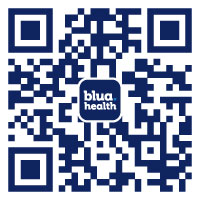A colonoscopy is an examination of the lining of the colon (large bowel) using a flexible, tube-like telescope called a colonoscope. This instrument is carefully passed through your rectum (back passage) and into the colon.
A colonoscopy is useful for finding out what is causing your symptoms, or as a check-up for certain bowel conditions. During the procedure, the doctor may take a biopsy - a sample of the lining of the colon - for examination in the laboratory. It is also possible to remove polyps, small lumps of tissue that may be found on the lining of the colon.
Colonoscopy is routinely performed as an outpatient or day case, requiring no overnight stay in hospital. A general anaesthetic is not usually required, but you will generally be given a sedative to help ensure that you are relaxed and comfortable during the procedure.
About the procedure
A colonoscopy usually takes about half an hour to perform. The procedure will not hurt, although it may be a bit uncomfortable.
Preparing for the procedure
For the doctor to see the lining of the colon clearly, it needs to be completely empty. To achieve this, you will need to follow a special diet for a few days before the procedure. For this diet, high-fibre foods need to be avoided. The hospital will provide menu advice.
You will also be given a laxative, which will come with detailed instructions on how and when to take it. You will be advised to drink plenty of clear fluids on the day before the examination.
Please do follow these instructions very carefully. If the colon is not completely empty, the doctor may not be able to get a clear view and the examination may have to be repeated.
Sedation and pain relief
Before the procedure begins, a sedative injection is given through a small plastic tube (a cannula) placed in a vein, often in the back of your hand. Almost immediately, this will make you feel relaxed and drowsy. You may also be given a painkiller.
Risks of colonoscopy
Colonoscopy is generally a safe procedure. For most people, the benefits of having a clear diagnosis, or quick and effective treatment, are much greater than any disadvantages. However, like all invasive medical procedures, there are some risks. These can be divided into the risk of side-effects and the risk of complications.
Side-effects of colonoscopy
These are the unwanted, but usually mild and temporary, effects of a successful procedure. After a colonoscopy, you may feel bloated and have wind pains, but these usually clear up quite quickly. Any sedative may make you feel sleepy.
Possible complications of colonoscopy
Your doctor will be very experienced at performing this type of procedure, but, even so, a few colonoscopies are not successfully completed and may need to be repeated.
Other complications are uncommon, but it is possible for the colon to be damaged or perforated during the procedure. This can lead to bleeding and infection, which may require treatment with medicines or surgery.
The chance of complications depends on the exact type of procedure you are having and other factors such as your general health. You should ask your consultant to explain how these risks apply to you.
What to expect during the colonoscopy
If a sedative has been given, the procedure will not start until it has taken effect. With you resting comfortably on your side, the colonoscope will be carefully inserted into your rectum.
Air will be passed through the tube and into the colon to make the lining easier to see. When this happens, you may briefly feel pains similar to having wind. You may also feel that you want to go to the toilet, but as the colon is empty, this will not be possible. You may pass some wind, but do try not to feel embarrassed about this, as the staff expect it to happen.
At the end of the colonoscope, a tiny light and lens enable the doctor to see if any disease is present. If necessary, the doctor will take a biopsy of the colons lining for analysis. Any polyps that are found can also be removed. Both techniques are quick and painless, using specialist instruments that can be passed inside the colonoscope.
When the examination is finished, the colonoscope is removed quickly and easily.
After the colonoscopy
The effects of any sedative may last longer than you expect, so you should not drive, operate machinery or drink alcohol for 24 hours after your examination. This means that you will have to arrange for someone to take you home. Once home, it's sensible to take it easy for the first 24 hours. Most patients feel able to resume normal activities on the following day.
Disclaimer
This information was published by Bupa Group's Health Content Team and has been reviewed by appropriate medical or clinical professionals. To the best of their knowledge the information is current and based on reputable sources of medical evidence, however Bupa (Asia) Limited makes no representation or warranty as to the completeness or accuracy of the Content.
The information on this page, and any information on third party websites referred to on this page, is provided as a guide only. It should not be relied upon as a substitute for professional medical advice, nor is it intended to be used for medical diagnosis or treatment. Bupa (Asia) Limited is not liable for any loss or damage you suffer arising out of the use of, or reliance on, the information.
Third party websites are not owned or controlled by Bupa and any individual may be able to access and post messages on them. Bupa is not responsible for the content or availability of these third party websites. Last updated August 2017.










